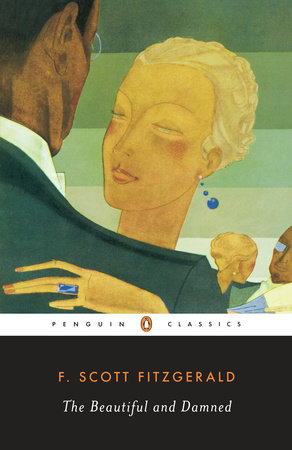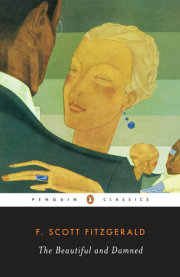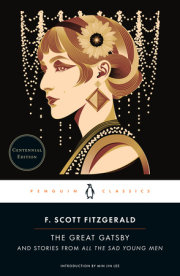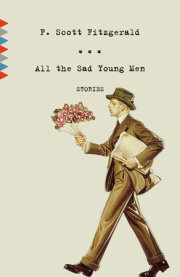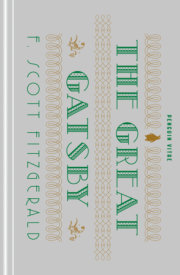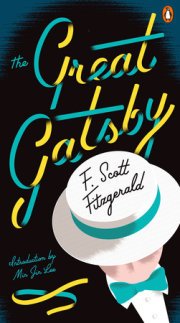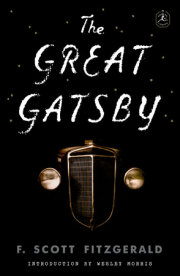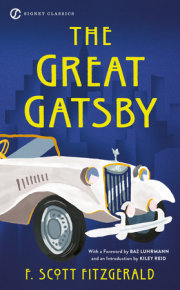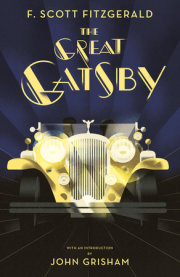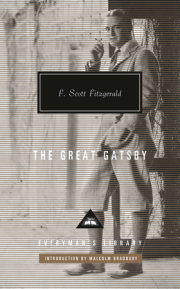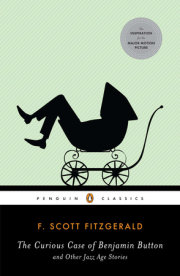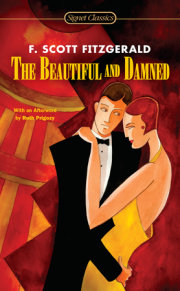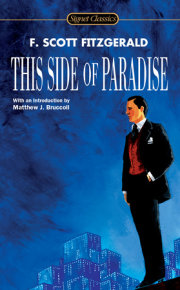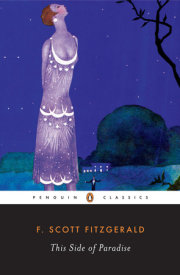CHAPTER IAnthony Patch In 1913, when Anthony Patch was twenty-five, two years were already gone since irony, the Holy Ghost of this later day, had, theoretically at least, descended upon him. Irony was the final polish of the shoe, the ultimate dab of the clothes-brush, a sort of intellectual “There!”—yet at the brink of this story he has as yet gone no further than the conscious stage. As you first see him he wonders frequently whether he is not without honor and slightly mad, a shameful and obscene thinness glistening on the surface of the world like oil on a clean pond, these occasions being varied, of course, with those in which he thinks himself rather an exceptional young man, thoroughly sophisticated, well adjusted to his environment, and somewhat more significant than any one else he knows.
This was his healthy state and it made him cheerful, pleasant, and very attractive to intelligent men and to all women. In this state he considered that he would one day accomplish some quiet subtle thing that the elect would deem worthy and, passing on, would join the dimmer stars in a nebulous, indeterminate heaven half-way between death and immortality. Until the time came for this effort he would be Anthony Patch—not a portrait of a man but a distinct and dynamic personality, opinionated, contemptuous, functioning from within outward—a man who was aware that there could be no honor and yet had honor, who knew the sophistry of courage and yet was brave.
a worthy man and his gifted son
Anthony drew as much consciousness of social security from being the grandson of Adam J. Patch as he would have had from tracing his line over the sea to the crusaders. This is inevitable; Virginians and Bostonians to the contrary notwithstanding, an aristocracy founded sheerly on money postulates wealth in the particular.
Now Adam J. Patch, more familiarly known as “Cross Patch,” left his father’s farm in Tarrytown early in sixty-one to join a New York cavalry regiment. He came home from the war a major, charged into Wall Street, and amid much fuss, fume, applause, and ill will he gathered to himself some seventy-five million dollars.
This occupied his energies until he was fifty-seven years old. It was then that he determined, after a severe attack of sclerosis, to consecrate the remainder of his life to the moral regeneration of the world. He became a reformer among reformers. Emulating the magnificent efforts of Anthony Comstock, after whom his grandson was named, he levelled a varied assortment of uppercuts and body-blows at liquor, literature, vice, art, patent medicines, and Sunday theatres. His mind, under the influence of that insidious mildew which eventually forms on all but the few, gave itself up furiously to every indignation of the age. From an armchair in the office of his Tarrytown estate he directed against the enormous hypothetical enemy, unrighteousness, a campaign which went on through fifteen years, during which he displayed himself a rabid monomaniac, an unqualified nuisance, and an intolerable bore. The year in which this story opens found him wearying; his campaign had grown desultory; 1861 was creeping up slowly on 1895; his thoughts ran a great deal on the Civil War, somewhat on his dead wife and son, almost infinitesimally on his grandson Anthony.
Early in his career Adam Patch had married an anæmic lady of thirty, Alicia Withers, who brought him one hundred thousand dollars and an impeccable entré into the banking circles of New York. Immediately and rather spunkily she had borne him a son and, as if completely devitalized by the magnificence of this performance, she had thenceforth effaced herself within the shadowy dimensions of the nursery. The boy, Adam Ulysses Patch, became an inveterate joiner of clubs, connoisseur of good form, and driver of tandems—at the astonishing age of twenty-six he began his memoirs under the title “New York Society as I Have Seen It.” On the rumor of its conception this work was eagerly bid for among publishers, but as it proved after his death to be immoderately verbose and overpoweringly dull, it never obtained even a private printing.
This Fifth Avenue Chesterfield married at twenty-two. His wife was Henrietta Lebrune, the Boston “Society Contralto,” and the single child of the union was, at the request of his grandfather, christened Anthony Comstock Patch. When he went to Harvard, the Comstock dropped out of his name to a nether hell of oblivion and was never heard of thereafter.
Young Anthony had one picture of his father and mother together—so often had it faced his eyes in childhood that it had acquired the impersonality of furniture, but every one who came into his bedroom regarded it with interest. It showed a dandy of the nineties, spare and handsome, standing beside a tall dark lady with a muff and the suggestion of a bustle. Between them was a little boy with long brown curls, dressed in a velvet Lord Fauntleroy suit. This was Anthony at five, the year of his mother’s death.
His memories of the Boston Society Contralto were nebulous and musical. She was a lady who sang, sang, sang, in the music room of their house on Washington Square—sometimes with guests scattered all about her, the men with their arms folded, balanced breathlessly on the edges of sofas, the women with their hands in their laps, occasionally making little whispers to the men and always clapping very briskly and uttering cooing cries after each song—and often she sang to Anthony alone, in Italian or French or in a strange and terrible dialect which she imagined to be the speech of the Southern negro.
His recollections of the gallant Ulysses, the first man in America to roll the lapels of his coat, were much more vivid. After Henrietta Lebrune Patch had “joined another choir,” as her widower huskily remarked from time to time, father and son lived up at grampa’s in Tarrytown, and Ulysses came daily to Anthony’s nursery and expelled pleasant, thick-smelling words for sometimes as much as an hour. He was continually promising Anthony hunting trips and fishing trips and excursions to Atlantic City, “oh, some time soon now”; but none of them ever materialized. One trip they did take; when Anthony was eleven they went abroad, to England and Switzerland, and there in the best hotel in Lucerne his father died with much sweating and grunting and crying aloud for air. In a panic of despair and terror Anthony was brought back to America, wedded to a vague melancholy that was to stay beside him through the rest of his life.
PAST AND PERSON OF THE HERO
At eleven he had a horror of death. Within six impressionable years his parents had died and his grandmother had faded off almost imperceptibly, until, for the first time since her marriage, her person held for one day an unquestioned supremacy over her own drawing room. So to Anthony life was a struggle against death, that waited at every corner. It was as a concession to his hypochondriacal imagination that he formed the habit of reading in bed—it soothed him. He read until he was tired and often fell asleep with the lights still on.
His favorite diversion until he was fourteen was his stamp collection; enormous, as nearly exhaustive as a boy’s could be—his grandfather considered fatuously that it was teaching him geography. So Anthony kept up a correspondence with a half dozen “Stamp and Coin” companies and it was rare that the mail failed to bring him new stamp-books or packages of glittering approval sheets—there was a mysterious fascination in transferring his acquisitions interminably from one book to another. His stamps were his greatest happiness and he bestowed impatient frowns on any one who interrupted him at play with them; they devoured his allowance every month, and he lay awake at night musing untiringly on their variety and many-colored splendor.
At sixteen he had lived almost entirely within himself, an inarticulate boy, thoroughly un-American, and politely bewildered by his contemporaries. The two preceding years had been spent in Europe with a private tutor, who persuaded him that Harvard was the thing; it would “open doors,” it would be a tremendous tonic, it would give him innumerable self-sacrificing and devoted friends. So he went to Harvard—there was no other logical thing to be done with him.
Oblivious to the social system, he lived for a while alone and unsought in a high room in Beck Hall—a slim dark boy of medium height with a shy sensitive mouth. His allowance was more than liberal. He laid the foundations for a library by purchasing from a wandering bibliophile first editions of Swinburne, Meredith, and Hardy, and a yellowed illegible autograph letter of Keats’s, finding later that he had been amazingly overcharged. He became an exquisite dandy, amassed a rather pathetic collection of silk pajamas, brocaded dressing-gowns, and neckties too flamboyant to wear; in this secret finery he would parade before a mirror in his room or lie stretched in satin along his window-seat looking down on the yard and realizing dimly this clamor, breathless and immediate, in which it seemed he was never to have a part.
Curiously enough he found in senior year that he had acquired a position in his class. He learned that he was looked upon as a rather romantic figure, a scholar, a recluse, a tower of erudition. This amused him but secretly pleased him—he began going out, at first a little and then a great deal. He made the Pudding. He drank—quietly and in the proper tradition. It was said of him that had he not come to college so young he might have “done extremely well.” In 1909, when he graduated, he was only twenty years old.
Then abroad again—to Rome this time, where he dallied with architecture and painting in turn, took up the violin, and wrote some ghastly Italian sonnets, supposedly the ruminations of a thirteenth-century monk on the joys of the contemplative life. It became established among his Harvard intimates that he was in Rome, and those of them who were abroad that year looked him up and discovered with him, on many moonlight excursions, much in the city that was older than the Renaissance or indeed than the republic. Maury Noble, from Philadelphia, for instance, remained two months, and together they realized the peculiar charm of Latin women and had a delightful sense of being very young and free in a civilization that was very old and free. Not a few acquaintances of his grandfather’s called on him, and had he so desired he might have been persona grata with the diplomatic set—indeed, he found that his inclinations tended more and more toward conviviality, but that long adolescent aloofness and consequent shyness still dictated to his conduct.
He returned to America in 1912 because of one of his grandfather’s sudden illnesses, and after an excessively tiresome talk with the perpetually convalescent old man he decided to put off until his grandfather’s death the idea of living permanently abroad. After a prolonged search he took an apartment on Fifty-second Street and to all appearances settled down.
Copyright © 2002 by F. Scott Fitzgerald. All rights reserved. No part of this excerpt may be reproduced or reprinted without permission in writing from the publisher.

